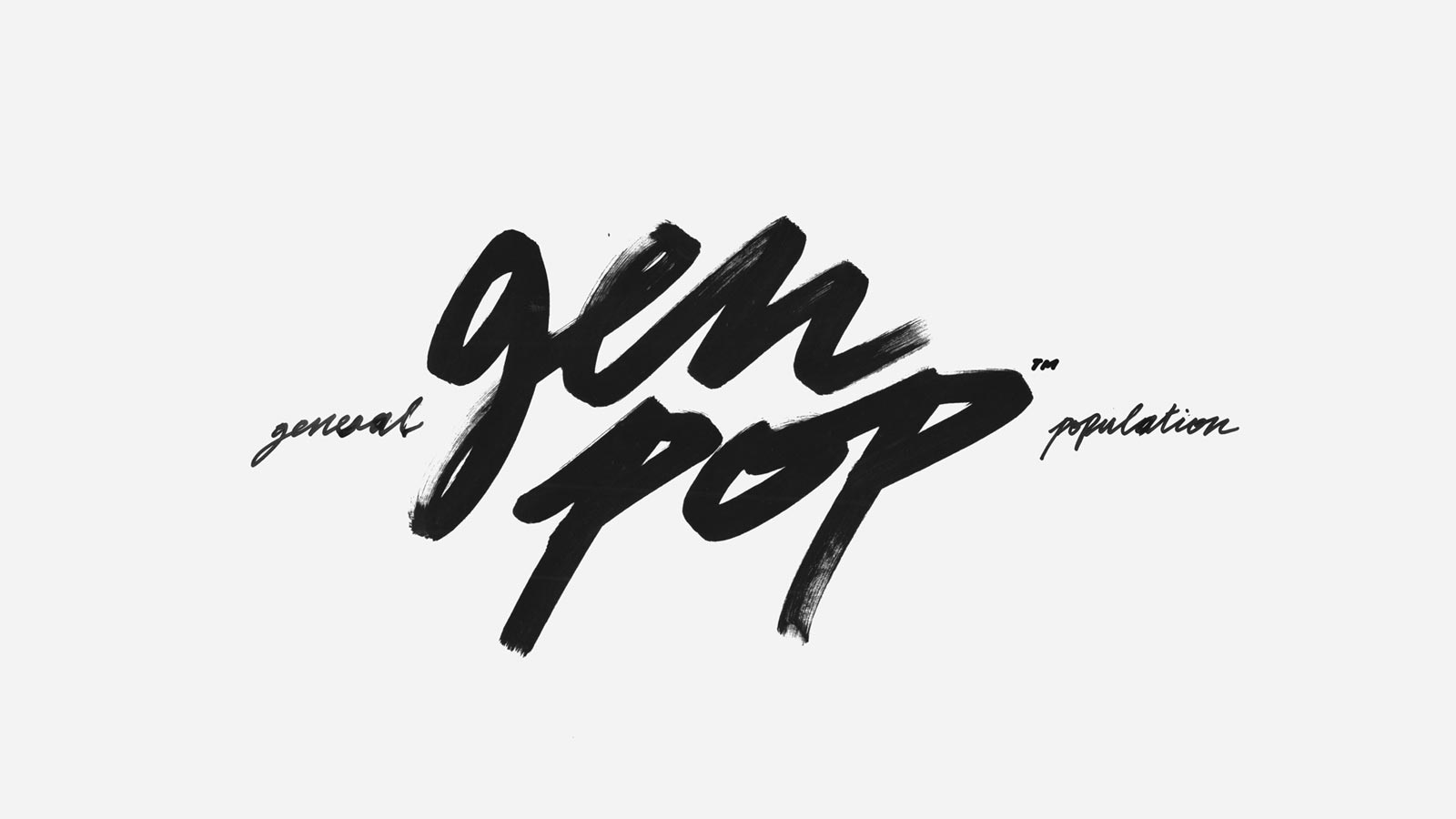Have you ever heard about genpop and wondered what it actually means? In today's world, where music trends come and go faster than you can say "playlist," genpop has emerged as a term that's both fascinating and confusing. It's like trying to describe a smoothie made of every flavor ever invented – it’s complex, but trust me, it’s worth exploring. So, buckle up because we’re diving deep into the world of genpop and unraveling its secrets!
Genpop is more than just another buzzword in the music scene. It’s a cultural phenomenon that’s reshaping how we think about music and art. Imagine taking all the cool elements of pop, adding a sprinkle of experimental sounds, and then shaking it up until you get something entirely fresh – that’s genpop in a nutshell. But let’s not get ahead of ourselves just yet.
Before we dive deeper, let’s clear the air. If you’ve been scratching your head wondering why everyone seems to be talking about genpop, don’t worry – you’re not alone. This term has been popping up everywhere, from music blogs to social media feeds, and we’re here to break it down for you. By the end of this article, you’ll not only know what genpop is but also why it matters so much in today’s music landscape.
- Sheila Ebanas Birth A Comprehensive Examination
- Who Is Shacarri Richardsons Wife Uncovering The Truth
Table of Contents
- What is Genpop?
- A Brief History of Genpop
- Key Characteristics of Genpop
- Artists Who Define Genpop
- The Impact of Genpop on Music
- Genpop in the Music Industry
- Current Trends in Genpop
- The Genpop Fanbase
- What Does the Future Hold for Genpop?
- Conclusion: Is Genpop Here to Stay?
What is Genpop?
Alright, let’s start with the basics. Genpop, short for "genre-pop," is a term used to describe music that blends multiple genres into one cohesive sound. Think of it as a musical smoothie where every ingredient – whether it’s pop, rock, hip-hop, electronic, or even classical – contributes to the final flavor. It’s not just about mixing genres, though; it’s about creating something that feels new, exciting, and, most importantly, relatable.
But here’s the kicker: genpop isn’t just about the music itself. It’s also about the culture, the community, and the way it connects with its audience. In a world where people crave authenticity and individuality, genpop offers a platform for artists to experiment and for listeners to discover new sounds. It’s like a musical buffet where everyone gets to try a little bit of everything.
How Did Genpop Become Popular?
Genpop’s rise in popularity can be traced back to the internet. Platforms like YouTube, SoundCloud, and TikTok have made it easier for artists to share their music with a global audience. And let’s face it, in today’s digital age, if it’s not online, does it even exist? These platforms have allowed genpop artists to reach fans across the globe, creating a community that’s both diverse and inclusive.
Plus, let’s not forget the role of social media influencers. They’ve played a huge part in promoting genpop by sharing playlists, collaborating with artists, and even creating content around the genre. It’s like a domino effect – one influencer talks about genpop, and suddenly, everyone’s talking about it.
A Brief History of Genpop
Genpop didn’t just appear out of thin air. Its roots can be traced back to the early 2010s when artists began experimenting with blending different genres. Think of bands like Imagine Dragons, who combined rock with pop, or artists like Billie Eilish, who mixed electronic sounds with alternative vibes. These artists paved the way for what we now know as genpop.
But it wasn’t until the mid-2010s that genpop really started to take off. The rise of streaming platforms like Spotify and Apple Music made it easier for listeners to discover new music. Algorithms began suggesting songs based on a user’s listening habits, leading to a wider exposure of genpop artists. It’s like a virtual DJ who knows exactly what you want to hear before you even know it yourself.
Key Moments in Genpop History
- 2014: The release of Hozier’s "Take Me to Church" marked a turning point in blending genres.
- 2016: The success of The Chainsmokers’ "Closer" showed how electronic music could crossover into mainstream pop.
- 2019: Billie Eilish’s debut album "When We All Fall Asleep, Where Do We Go?" became a global phenomenon, showcasing the power of genre-blending.
Key Characteristics of Genpop
So, what makes genpop stand out from other genres? For starters, it’s all about experimentation. Genpop artists aren’t afraid to push boundaries and try new things. Whether it’s incorporating unconventional instruments, using unique production techniques, or even writing lyrics in multiple languages, genpop is all about breaking the rules.
Another defining characteristic of genpop is its focus on storytelling. Many genpop artists use their music as a platform to share personal experiences, social issues, or even fictional narratives. It’s like reading a book, but instead of pages, you’ve got melodies and harmonies.
Common Elements in Genpop Music
- Mixed genres: Think pop with a hint of rock, or electronic with a splash of jazz.
- Innovative production: Genpop artists often use cutting-edge technology to create unique sounds.
- Emotional depth: Lyrics in genpop tend to be more introspective and meaningful.
Artists Who Define Genpop
When it comes to genpop, there are a few artists who’ve truly made a name for themselves. Let’s take a look at some of the biggest names in the game:
Billie Eilish
With her unique sound and edgy aesthetic, Billie Eilish has become a genpop icon. Her music blends elements of pop, electronic, and alternative, creating a sound that’s both familiar and fresh. And let’s not forget her incredible vocal range – it’s like she’s got a whole choir in her throat!
The Weeknd
The Weeknd’s music is a perfect example of how genpop can evolve over time. From his early R&B roots to his more recent pop-infused hits, The Weeknd has shown that genpop isn’t afraid to change and grow.
Dua Lipa
Dua Lipa’s "Future Nostalgia" album is a testament to the power of genpop. By blending disco, pop, and electronic influences, she’s created a sound that’s both retro and futuristic. It’s like a time machine for your ears!
The Impact of Genpop on Music
Genpop has had a profound impact on the music industry. It’s challenged traditional notions of what music should sound like and opened up new possibilities for artists. In a world where genres were once clearly defined, genpop has blurred the lines, creating a more inclusive and diverse musical landscape.
But it’s not just about the music itself. Genpop has also changed the way we consume music. With the rise of playlists and algorithms, listeners are now exposed to a wider variety of sounds than ever before. It’s like having a personal music concierge who knows exactly what you’re into.
How Genpop is Changing the Industry
- More opportunities for artists to experiment and innovate.
- Increased collaboration between artists from different genres.
- A shift towards more diverse and inclusive music.
Genpop in the Music Industry
From a business perspective, genpop has been a game-changer for the music industry. Labels are now more open to signing artists who don’t fit into traditional genre categories, recognizing the potential of genpop to attract a wider audience. And let’s not forget the revenue generated from streaming platforms – genpop artists are racking up millions of streams every day.
But it’s not all sunshine and rainbows. Some critics argue that genpop’s focus on experimentation can lead to a lack of identity. They worry that by trying to appeal to everyone, genpop artists might lose what makes them unique. It’s a valid concern, but one that many artists are actively working to address.
Challenges Facing Genpop Artists
- Standing out in an increasingly crowded market.
- Maintaining authenticity while appealing to a broad audience.
- Navigating the complexities of the music industry.
Current Trends in Genpop
Right now, genpop is all about collaboration. Artists from different genres are coming together to create music that’s both innovative and exciting. Whether it’s a pop star teaming up with a rapper or an electronic artist working with a classical musician, the possibilities are endless.
Another trend in genpop is the use of technology. From virtual reality concerts to AI-generated music, technology is playing a bigger role in how genpop is created and consumed. It’s like stepping into the future of music – and it’s pretty cool if you ask me.
Emerging Trends to Watch
- More focus on live performances and immersive experiences.
- Growing use of AI and machine learning in music production.
- Increased emphasis on sustainability and eco-friendly practices in the music industry.
The Genpop Fanbase
One of the coolest things about genpop is its fanbase. Genpop fans are some of the most passionate and dedicated music lovers out there. They’re not just listening to music – they’re living it. Whether it’s attending concerts, creating fan art, or even starting their own genpop projects, genpop fans are fully immersed in the culture.
And let’s not forget the role of social media. Platforms like TikTok and Instagram have given genpop fans a voice, allowing them to connect with each other and share their love for the genre. It’s like a global community of music enthusiasts, all united by their passion for genpop.
What Does the Future Hold for Genpop?
Looking ahead, the future of genpop looks bright. With new technologies emerging and artists continuing to push boundaries, there’s no telling where genpop will go next. One thing’s for sure, though – it’s not going anywhere anytime soon.
As the music industry continues to evolve, genpop will undoubtedly play a key role in shaping its future. Whether it’s through new collaborations, innovative production techniques, or even entirely new genres, genpop will continue to inspire and excite music fans around the world.
Conclusion: Is Genpop Here to Stay?
So, what have we learned? Genpop is more than just a genre – it’s a movement. It’s about breaking down barriers, embracing diversity, and creating music that resonates with people on a deeper level. From its humble beginnings in the early 2010s to its current status as a global phenomenon, genpop has proven that it’s here to stay.
As we wrap up, I want to leave you with this thought: the next time you hear a song that doesn’t quite fit into a single genre, take a moment to appreciate it. That’s genpop in action – pushing boundaries, challenging norms, and changing the way we think about music. And who knows? Maybe one day, you’ll be the one creating the next big genpop hit!
So, what are you waiting for? Dive into the world of genpop, explore its sounds, and let it take you on a musical journey like no other. And don’t forget to share your thoughts in the comments below – I’d love to hear what you think!
- Discover The Family Ties Of Vedang Raina A Glimpse Into His Personal Life
- The Truth About Iskirby Real Uncover The Facts


